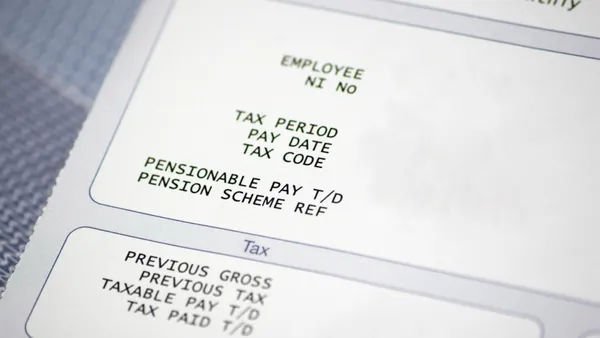Dive Brief:
- Although most workplaces (94%) offer paid bereavement leave, up from 83% in 2016, studies by the International Foundation of Employee Benefit Plans (IFEBP), employers are finding that three days aren't enough for many workers to process and grieve after the devastating loss of a child, spouse or parent, said Julie Stich, CEBS, associate vice president of IFEBP.
- Employers arrived at the average three-day bereavement policy to give workers time to make funeral arrangements, said Stich. According to IFEBP, 60% of employers offer three days of paid bereavement after the death of a child or parent and 56% after a spouse's death. Only 3% offer six or more days of bereavement for a parent or child, and just 5% for a spouse.
- "Expanding bereavement leave policies is a potentially low-cost benefit that can go a long way in supporting employees," Stich said. "The way a person responds to the loss of a close loved one differs from person to person, but such a loss is always devastating. An employer that offers extra time off shows empathy and compassion."
Dive Insight:
Workers value empathy in their employers, and extending bereavement time demonstrates that organizations understand workers' needs during times of crisis. Empathy coming from the top also drives engagement, performance and retention.
Traditionally, employee assistance programs (EAPs) have been the resource employers turn to to help workers cope with the loss of a loved one, addictions and other stress-related problems. Employers can still find EAPs to be an invaluable extension of their support for workers.
Expanding bereavement time is a relatively low-cost investment in employees' well-being, Sitch said. Not all workers' needs for bereavement will be the same, but knowing that the time is there if they need it can be comforting in stressful times. Facebook, for example, earned headlines after the company expanded its bereavement policy last year, giving employees 20 days of leave for a family members' death.










